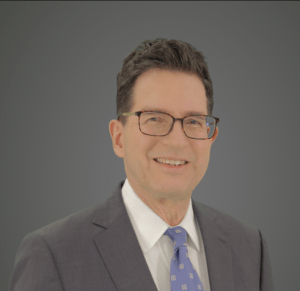Friday, April 7, 2023,
9:00 am – 4:15 pm ET
Lindner Family Commons, 1957 E St NW
The Institute for International Economic Policy is pleased to announce the 15th Annual Conference on China’s Economic Development and U.S.-China Economic Relations will take place on Friday, April 7th, 2023 at the Elliott School of International Affairs. This conference is co-sponsored by the Sigur Center for Asian Studies and the GW Center for International Business Education and Research (GW-CIBER). Breakfast, lunch, and light refreshments will be provided.
Conference Agenda:
8:30-9:00 a.m. – Breakfast and Registration
9:00-9:15 a.m. – Welcome Remarks
- IIEP Director Remi Jedwab
- Elliott School Dean Alyssa Ayres
9:15-10:00 a.m. – Keynote Address – “The Study of China’s Political Economy: Our Evolving Analytical Agenda”
- Harry Harding (UVA, National Chengchi University, and Center for Asia Pacific Resilience and Innovation – CAPRi)
10:00-11:15 a.m. – Panel 1: The State and the Political System in China
- Bruce Dickson (GWU)
- Meg Rithmire (Harvard)
- Yuhua Wang (Harvard)
11:15-11:30 a.m. – Coffee break
11:30 a.m.-12:30 p.m. – Panel 2: Autocracy, Movement, and Development in Chinese History and Today
- Yasheng Huang (MIT)
- Suqin Ge (Virginia Tech)
12:30-1:30 p.m. – Lunch
1:30-2:45 p.m. – Panel 3: Trade War and a Race of Industrial Policy
- Chad Bown (Peterson Institute)
- Lee Branstetter (CMU)
- Jennifer Hillman (Georgetown)
2:45-3:00 p.m. – Coffee break
3:00-4:15 p.m. – Panel 4: The Past, Present, and Future of U.S.-China Relations
- Harry Harding (UVA, National Chengchi University, and Center for Asia Pacific Resilience and Innovation – CAPRi)
- Michael Lampton (JHU)
- David Shambaugh (GWU)
4:15 p.m. – Closing Remarks
About the Keynote Speaker
 Harry Harding is Yushan Scholar and University Chair Professor in the College of Social Science at National Cheng Chi University in Taiwan and University Professor Emeritus and Professor Emeritus of Public Policy at the University of Virginia, where he is also a Faculty Senior Fellow at the Miller Center of Public Affairs. He has previously held visiting or adjunct appointments at the Hoover Institution at Stanford, the University of Washington, the Chinese University of Hong Kong, the University of Sydney, the University of Hong Kong, the Hong Kong University of Science and Technology, and National Cheng Chi University.
Harry Harding is Yushan Scholar and University Chair Professor in the College of Social Science at National Cheng Chi University in Taiwan and University Professor Emeritus and Professor Emeritus of Public Policy at the University of Virginia, where he is also a Faculty Senior Fellow at the Miller Center of Public Affairs. He has previously held visiting or adjunct appointments at the Hoover Institution at Stanford, the University of Washington, the Chinese University of Hong Kong, the University of Sydney, the University of Hong Kong, the Hong Kong University of Science and Technology, and National Cheng Chi University.
Harding served as the founding dean of UVA’s Frank Batten School of Leadership and Public Policy between 2009 and 2014. Before joining the Batten School, he held faculty appointments at Swarthmore College and Stanford University, founded the Asia Program at the Woodrow Wilson International Center for Scholars, and was a Senior Fellow in the Foreign Policy Studies Program at the Brookings Institution. From 1995 to 2005 he was Dean of the Elliott School of International Affairs at the George Washington University, and from 2005 to 2007 was Director of Research and Analysis at Eurasia Group, a political risk advisory and consulting firm based in New York. He has served on the boards of several educational and non-profit institutions, as well as on the U.S.-China Joint Commission on Science and Technology and the U.S. Defense Policy Board.
Harding is the author of Organizing China: The Problem of Bureaucracy, 1949-1976; China’s Second Revolution: Reform After Mao; A Fragile Relationship: the United States and China Since 1972; and the chapter on the Cultural Revolution in The Cambridge History of China. He is also the editor or co-editor of China’s Foreign Relations in the 1980s; Sino-American Relations, 1945-1955: A Joint Reassessment of a Critical Decade; and The India-China Relationship: What the United States Needs to Know. He is presently writing a book on the history of the US-China relationship from the Clinton Administration to the Trump Administration, with the working title A Broken Engagement: the United States and China from Partners to Competitors.
Harding received his B.A. from Princeton and his M.A. and Ph.D. from Stanford. He is an elected member of the Cosmos Club, The Council on Foreign Relations, the International Institute for Strategic Studies, the Foreign Correspondents Club of Hong Kong; and the Royal Institute of International Affairs (Chatham House).
